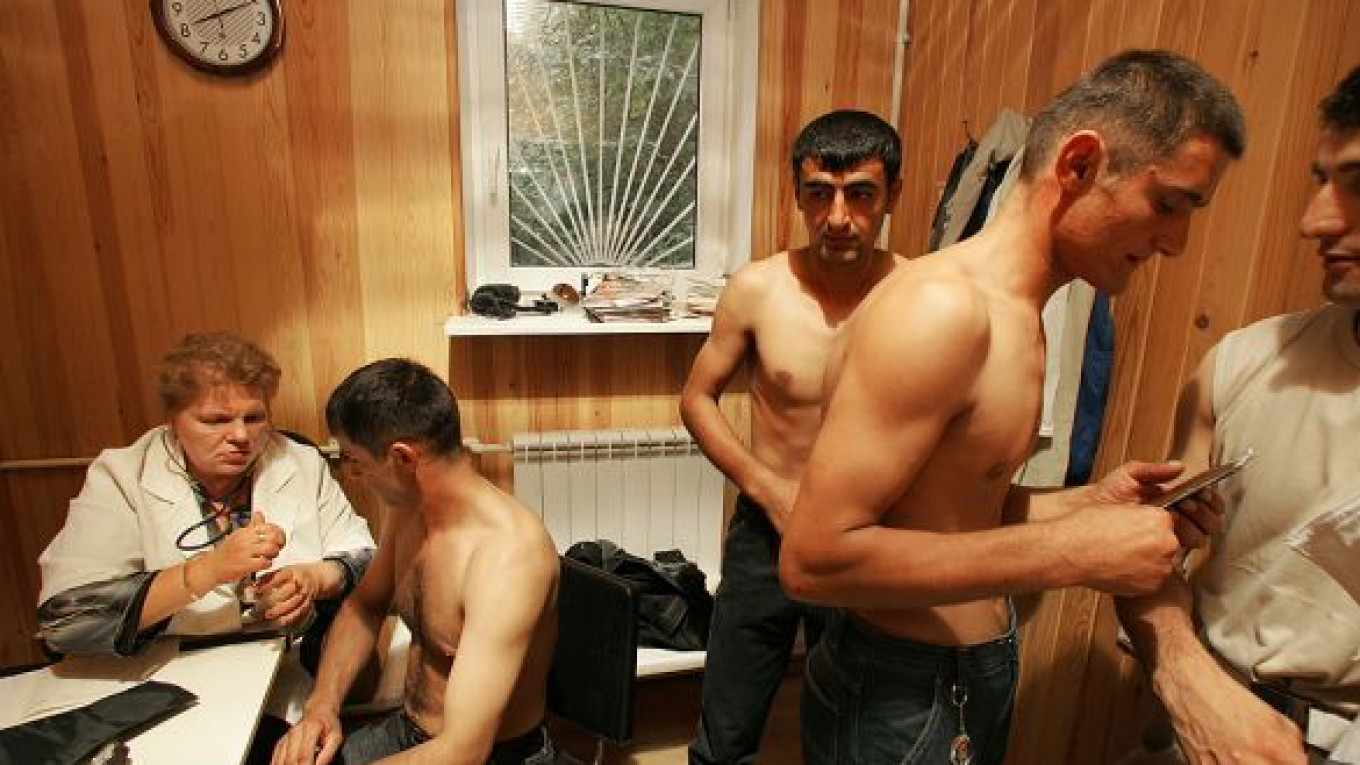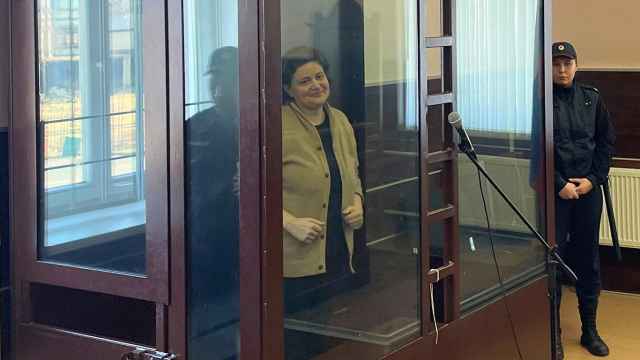Recent suggestions by United Russia members on dealing with illegal migrant labor and the pension fund deficit have been regarded as unrealistic, or even absurd.
"It is a contest of pointless idiocy," Center for Political Technologies head Alexei Mukhin said.
Last week, Federal Migration Service director Konstantin Romodanovsky suggested giving pensions to migrant workers to entice them to work legally.
Last month at a United Russia discussion club, All-Russia Society for Nature Conservation president Elmurod Rasulmukhamedov suggested that the government send pensioners to countries where the cost of living is cheaper, Ogonyok reported.
"Interesting picture — one official [a member of United Russia] suggests paying pensions to migrant workers, another official [who heads the nature society], also a United Russia member, suggests deporting domestic pensioners to other countries to not worry about increasing their pensions? Is this an insult to our citizens and common sense," Vyacheslav writes in the comments section of the Izvestia interview with Romodanovsky.
United Russia is ruining its image ahead of the elections, Mukhin said. The party's approval ratings have been slipping, from 64 percent last year to 51 percent this year.
The party will likely win a parliamentary majority in the upcoming elections, but after Dec. 4 "life will get difficult for the party," said Andrei Pointkovsky, director of the Center for Strategic Research.
The Russian government set a quota Wednesday of 1.75 million foreign workers to enter the country in 2012. Nearly a quarter of those workers will be unskilled.
Pensions for migrant workers are highly unlikely in the near future because there are not enough resources, UralSib chief economist Alexei Devyatkin said. The growing pension fund deficit could reach 1.75 trillion rubles ($57.38 billion) next year.
Not paying registered migrant workers pensions is convenient for the country — their paychecks are taxed for the pension fund, yet they will not get a pension, Devyatkin said.
The prospect of receiving a Russian pension is not a likely incentive for illegal migrant workers to seek legal employment. Most migrant workers are under 30 years old, Devyatkin said. The average Russian pension is 8,000 rubles per month.
More than 4 million illegal immigrants work in Russia, according to government estimates. And the numbers are growing.
While pensions may convince some illegal workers to go legal, it will create a real headache for the employer and may cause more illegal machinations that will cost the government, headhunter Unity staffing specialist Vitaly Lavrentyev said.
Employers, forced to officially employ all their workers, including immigrants, on top of paying the recently increased social tax, will put the burden of all those expenses on the consumer and come up with new ways to dodge the system, Lavrentyev said.
There are many companies that pay Russian citizens off the books. Comprehensive labor reforms are necessary to force all employers to officially register all workers and contribute their taxes to the pension fund.
"It is upsetting that they are trying to solve issues with immigrants while the problem has not been solved with the official paychecks of Russian citizens," Lavrentyev said.
A Message from The Moscow Times:
Dear readers,
We are facing unprecedented challenges. Russia's Prosecutor General's Office has designated The Moscow Times as an "undesirable" organization, criminalizing our work and putting our staff at risk of prosecution. This follows our earlier unjust labeling as a "foreign agent."
These actions are direct attempts to silence independent journalism in Russia. The authorities claim our work "discredits the decisions of the Russian leadership." We see things differently: we strive to provide accurate, unbiased reporting on Russia.
We, the journalists of The Moscow Times, refuse to be silenced. But to continue our work, we need your help.
Your support, no matter how small, makes a world of difference. If you can, please support us monthly starting from just $2. It's quick to set up, and every contribution makes a significant impact.
By supporting The Moscow Times, you're defending open, independent journalism in the face of repression. Thank you for standing with us.
Remind me later.






